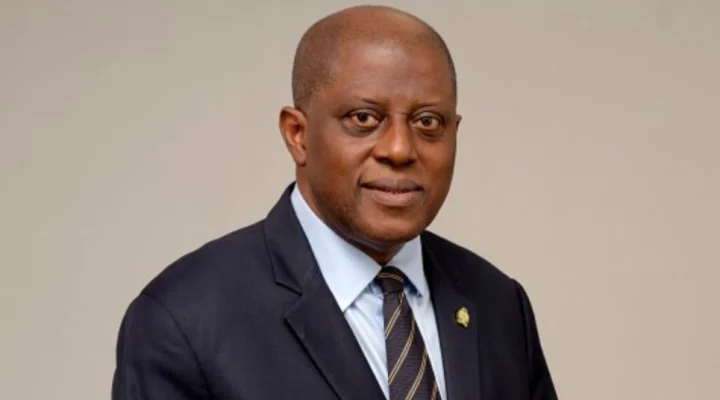The Governor of the Central Bank of Nigeria (CBN), Olayemi Cardoso, has introduced a new annual economic lecture series designed to bring together policymakers, academics, business leaders, and civil society to strengthen national discussions on monetary policy and economic development. The initiative, which debuts on October 3, 2025, at the Lagos Business School, Pan-Atlantic University, will focus on the theme “Next Generation Leadership in Monetary Policy and Nation Building.”
The lecture series is part of the CBN’s broader Knowledge Acceleration & Thought Leadership Initiative, a flagship effort aimed at promoting dialogue and fostering innovation within Nigeria’s economic landscape. It is expected to serve as a platform where pressing issues such as inflation, exchange rate stability, financial inclusion, and long-term growth strategies can be critically examined and debated.

Governor Cardoso described the launch as timely, noting that Nigeria is at a critical juncture where global financial shifts, domestic economic challenges, and technological advancements demand forward-looking leadership in policy. He emphasized that the lectures will bridge theory and practice, allowing Nigeria to explore practical solutions for sustainable growth while addressing structural economic challenges.
The inaugural edition will also coincide with the second anniversary of Cardoso’s leadership at the CBN, giving the event added significance. According to organizers, the choice of Lagos Business School as the venue reflects the importance of engaging academic and professional communities in shaping Nigeria’s policy trajectory. Plans are already in motion to rotate future editions of the series across universities nationwide to ensure broader participation and inclusivity.
The CBN has explained that the annual gathering is not merely academic but a deliberate attempt to align monetary policy decisions with national aspirations. The lectures will feature guest speakers, panel discussions, and interactive sessions to stimulate robust debate on Nigeria’s economic direction. Stakeholders from government ministries, regulatory bodies, universities, industry associations, and civil society groups are expected to participate, underscoring the scale and importance of the event.
Observers believe the series could help strengthen public trust in central bank policies, especially as Nigerians continue to grapple with exchange rate volatility, inflationary pressures, and liquidity concerns. By fostering open dialogue and transparency, the CBN hopes the initiative will improve how policies are understood, communicated, and implemented.
However, analysts caution that the success of the series will depend on how well discussions are translated into actionable outcomes. While intellectual forums are important, they stress that Nigerians will judge the effectiveness of the lecture series on whether it leads to tangible policy reforms that ease economic challenges and support stability.
Beyond the symbolism of its launch during Nigeria’s Independence Day month, the lecture is expected to set the tone for the CBN’s policy direction in the last quarter of the year. It signals a shift in the apex bank’s role—moving beyond its regulatory duties to also serve as a convener of ideas and solutions for the nation’s economic development.
With anticipation building ahead of the inaugural session, the CBN Governor is positioning the lecture series as a long-term mechanism for shaping Nigeria’s economic discourse. For many, the event represents an opportunity to inject fresh perspectives into policymaking, promote accountability, and strengthen collaboration between the government and the wider public.
The first lecture in October will therefore be watched closely by stakeholders across Nigeria’s political and economic spectrum, as it could provide key insights into how the CBN intends to balance stability, growth, and inclusivity in the months and years ahead.
Support InfoStride News' Credible Journalism: Only credible journalism can guarantee a fair, accountable and transparent society, including democracy and government. It involves a lot of efforts and money. We need your support. Click here to Donate
